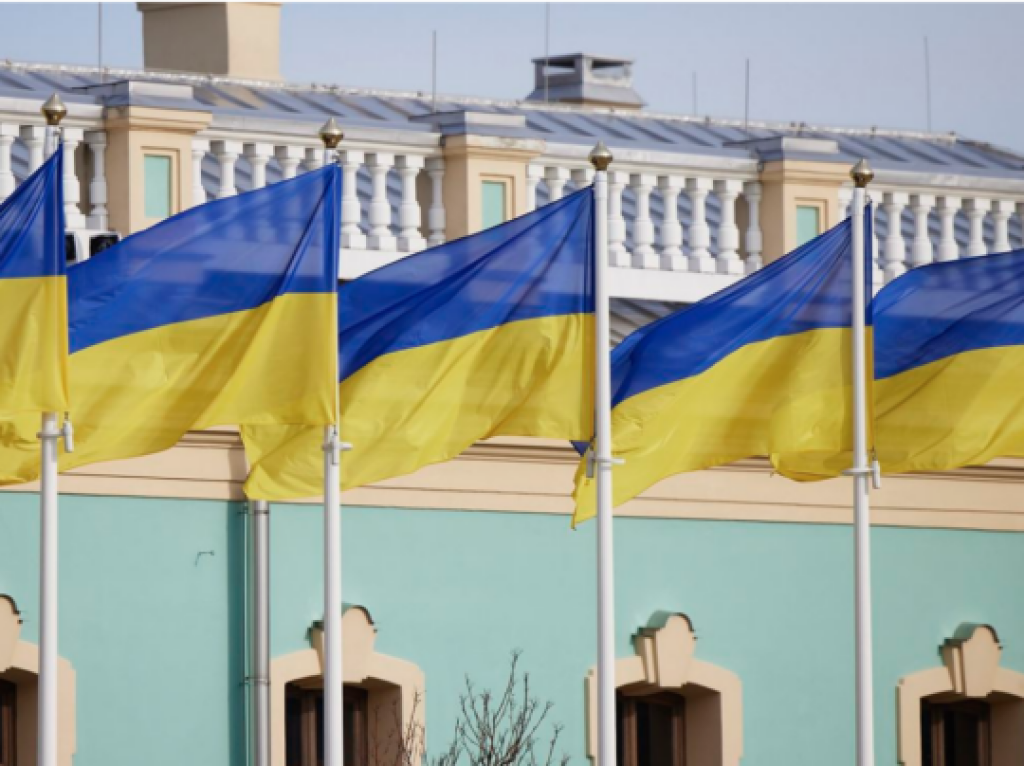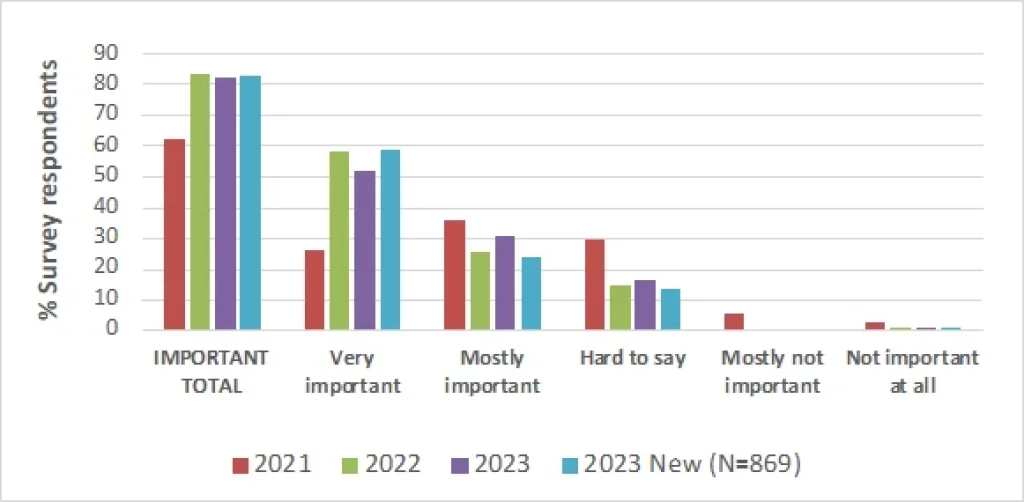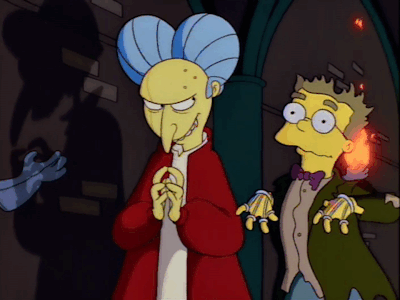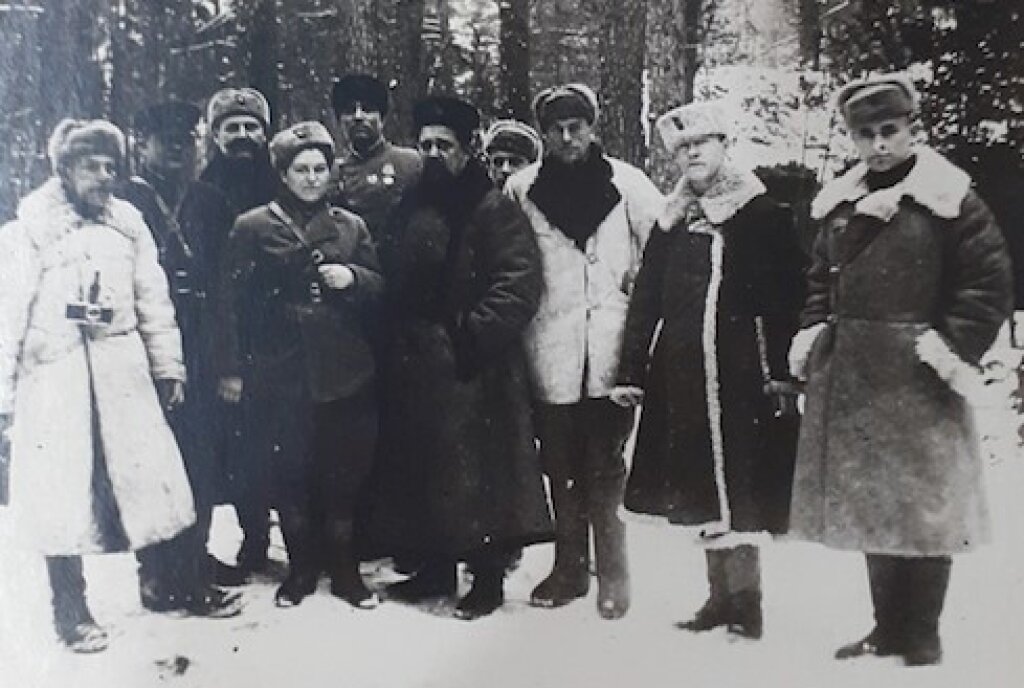This is Part II in a two-part series. Part I may be found here.
This piece originally appears on PONARS Eurasia on 11/14.
Mikhail Alexseev is a Professor of Political Science at San Diego State University.
Serhii Dembitskyi is Deputy Director of the Institute of Sociology of the National Academy of Sciences of Ukraine.
Victory-freedom complex
The increasing toll of the war has not dampened Ukrainians’ support for political freedom. In fact, it appears that this suffering has engendered a clearer understanding of the importance of continued fighting by building a sense of shared sacrifice and raising the value of political freedom.
Over 80 percent of respondents to our 2023 polls—about the same share as in 2022—said democracy was very or mostly important to them personally. An shift of about six percentage points from “very important” to “mostly important” in our tracking poll (N=329) was not statistically significant, and our new poll of 869 respondents in June 2023 generated results nearly identical to those we saw in the tracking poll a year ago (see Figure 5). The findings were virtually the same when respondents were asked whether free speech was important to them.
A more detailed analysis controlling for age, gender, language use, income, and region indicates that support for freedom has solidified in the crucible of war:
In the 2023 wave of our tracking poll, Ukrainians who had suffered losses in the war continued to value democracy about as strongly as they did in 2022, while those who reported no war losses valued democracy somewhat less than before (on average about six percent lower, a statistically significant difference). We found the same result for 2023 with our new poll of 869 respondents. (In 2022, support for democracy was about the same regardless of loss, probably reflecting the massive rallying against Russian invasion in the first months of the full-scale war.)
In both the 2022 and 2023 waves of our tracking poll, as well as in the new June 2023 poll, Ukrainians who believed in Ukraine’s eventual victory in the war were about 25 percent more likely to see democracy as important than those who did not believe in victory. Experiencing losses in the war had no significant effect on belief in victory.
Our longitudinal statistical analysis of the tracking poll data, which factored in both differences among respondents and differences among the same respondents over time, further found that:
The onset of the war in 2022 remained a major driver of support for democracy in 2023.
The war mobilized national identity in support of democracy as a system of government and of free speech; in 2023, Ukrainian language use emerges as a key correlate of democracy, the other main sociodemographic factors and war effects being equal; and the design of statistical tests indicates that most of this relationship is due not to preference falsification, but to a genuine desire to turn to Ukrainian symbols and identity in the face of Russian invasion.
Not only does democratic resilience come at a massive human cost, but the challenges abound. Suggesting that the current war is also a war of ideas and media influence, in tracking poll respondents who in November 2021 listed Russia as one of their main news sources tended to be less supportive of democracy as a political system (although they still supported free speech about as much as others).
On aggregate, these findings point to the emergence of a victory-freedom complex in Ukrainian society that is driving sustained resilience in the face of the rising toll of the Russian invasion.
The reason for this resilience emerged clearly from our focus group discussions: any failure to drive Russia out of all occupied territories is simply unthinkable. It is incomprehensible given the tremendous sacrifices Ukraine has borne to fight off Russia’s efforts to strip Ukrainians of their freedoms and national identity.
This insight comes from focus group participants’ reaction to the question: “To what extent do you believe public support for Zelensky will depend on the outcome of the war? What if the war does not end the way we expect it to end?” Of the 24 participants who engaged on the question, only nine gave specific answers. Most others expressed disbelief in the very premise of the question, implying that to them the war will not end if Ukraine does not reclaim all occupied territories. The following statements summarize the prevailing mood:
“And for what did people die, then? For what did they lose their arms, legs, homes, property? For what? For what did a mother lose her son?” Natalya, 47, Lviv (displaced, originally from Mar’inka, Donetsk oblast).
“Why, then, did our men die? For what have our boys been killed since 2014? What are the Allies of Glory memorials for? What has everything been for?” Angela, 46, Mykolaiv.
“Zelensky then will no longer be Zelensky. … I will then demand that he takes up arms himself and fights to return Crimea, Donbas, and Luhansk.” Dmytro, 18, Mykolaiv.
“Our president said that if we don’t return our territories within 1991 borders, then it will not be victory, it will be capitulation. So the war will go on till we reach our borders. And that’s it.” Lyudmila, 50, Kyiv.
“One person cannot win a war. And we all, the whole nation, are trying, helping every way we can. He, as president, does the right thing. So far, the right thing. Victory will be ours.” Vyachaslav, 70, Mykolaiv.
Global implications
Our surveys and focus groups clearly show how hard it would be for Ukrainians to accept any ceasefire or peace agreement that would entail the loss of territory to Russia. They also imply that if the United States and its allies reduce support for Ukraine, Ukrainians will continue to fight. Given the massive increases in Russian military spending that are projected for next year, it is clear Moscow will push on. Evidently, therefore, the realistic choice is not between continuing the war and trading peace for land (as many in the Biden administration may hope), but a war in which Ukraine receives more advanced and sizable military aid faster, increasing its odds of pushing Russia out of the occupied territories within a year or so, or a grinding war with diminishing Western assistance and possibly renewed Russian advances, which may last for years and spawn unfathomable global consequences—from empowering China, North Korea, and Iran and its Middle East proxies, including Hamas, to challenge the US and its allies more boldly, to the renewal of civil war in the former Yugoslavia, to greater instability in the Sahel coup-belt, to greater Russian sway over Latin America.




